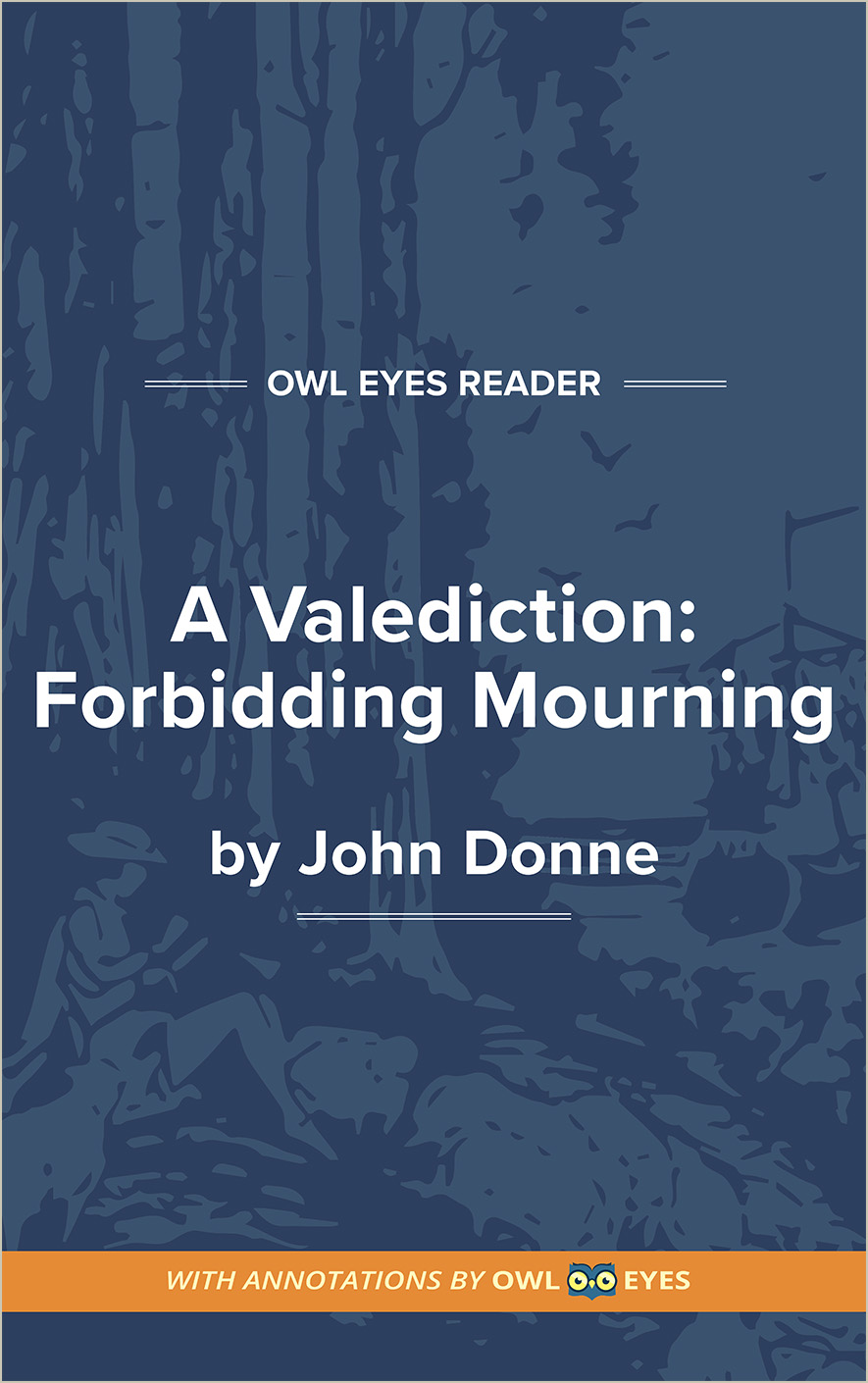Analysis Pages
Themes in A Valediction: Forbidding Mourning
Love: This poem is primarily concerned with the love between the speaker and his significant other. The speaker argues that even though he will be separated from his love by distance and circumstance, their love will remain true and pure. He develops this argument by crafting metaphors that describes their love as separate from their physical bodies. Their love exists between their two minds and cannot be compromised or lessened by physical distance. Donne compares them to the legs of a mathematical compass to illustrate that the lovers are two separate entities of a connected whole.
Death: The poem begins with an illustration of death. Donne describes a group of people gathered at the deathbed of a virtuous man trying to determine which breath will be his last. The abrupt turn from death to life in the second stanza is reminiscent of Carpe Diem poetry. Carpe Diem poetry largely uses illustrations of death to encourage a greater appreciation for the beauty and impermanence of life. The illustration of death here creates the same effect: the speaker wants his paramour to appreciate the beauty of their love.
Themes Examples in A Valediction: Forbidding Mourning:
A Valediction: Forbidding Mourning
🔒"makes..." See in text (A Valediction: Forbidding Mourning)
"love..." See in text (A Valediction: Forbidding Mourning)
"laity..." See in text (A Valediction: Forbidding Mourning)
"Inter-assurèd of the mind, Care less eyes, lips and hands to miss..." See in text (A Valediction: Forbidding Mourning)

